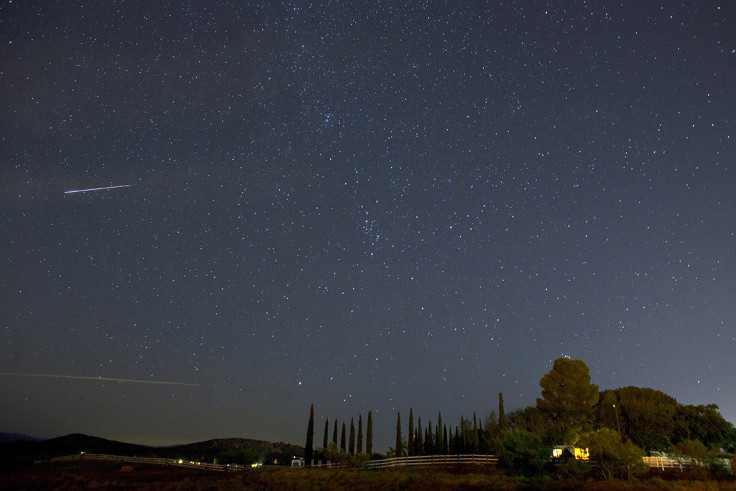Leonid meteor shower 2015: Where to watch shooting stars in the UK and US

Shooting stars will light up the night sky this week during the annual Leonid meteor shower, due to peak on 18 November. The shower will be visible from most places around the world, including the UK and the US. American skywatchers can expect to see up to 15 meteors per hour between midnight and dawn.
The shooting stars from the Leonid meteor shower appear to come from the constellation Leo, which lies between Cancer to the west and Virgo to the east. Associated with the comet Tempel-Tuttle, the Leonid meteor shower takes place when the Earth passes through the debris field left behind by the comet.
Where can I see the meteor shower in the UK?
Thanks to specially allocated areas of dark sky free of light pollution, it is possible to see the meteor shower even in cities.
London: The WaterWorks Nature Reserve in east London is a spot less affected by light pollution - a rarity in the capital. You can get there via Clapton and Leyton Midland Rd stations.
Birmingham: Warley Woods is west of the city centre and can be reached via the A456 Hagley Road.
Manchester: Heaton Park is the largest park in greater Manchester. It is accessible by tram or bus from the city centre, or via the M60 motorway.
Newcastle: Northumberland National Park is the largest Dark Sky Park in Europe.
Glasgow: The Mugdock Country Park can be reached by bus from the city centre.
Cardiff: The Brecon Beacons Dark Sky Reserve was the first destination in Wales to be granted special protection as an international dark sky reserve.
Belfast: Oxford Island National Nature Reserve hosted an event for the BBC Stargazing Live in 2012 and 2013.
Sheffield: In the Peak District, Surprise View is a car park on the outskirts of Hathersage with a panoramic view of the Hope Valley - which may be a good spot for spotting the meteor shower.
Bristol: Leigh Woods can be reached from the centre via the A369 towards Portishead.
Where can I see the meteor shower in the US?
Pennsylvania: Cherry Springs State Park is a gold-certified International Dark Sky Park and its night sky viewing area is open 24/7.
New York: The Carl Schurz Park on the Upper East Side of the city is home to the Amateur Astronomers Association of New York on Friday nights.
California: Death Valley National Park is a gold-certified International Dark Sky Park, with very little artificial light within its 3.4 million acres. Angeles National Forest in Los Angeles County, southern California, is also good spot.
Philadelphia: The Tuckahoe State Park is two hours out of the city.
Arizona: The Kitt Peak National Observatory, near Tucson, is home to the world's largest collection of optical telescopes. The clear, dark skies of the Sonoran desert are also a firm favourite with astronomers.
Utah: The night sky at Bryce Canyon is so dark it is possible to see 7,500 stars on a moonless night.
Illinois: The Hickory Knolls Discovery Centre in St Charles is a nature conservatory and a Dark Sky Park.
New Mexico: Chaco Culture National Historical Park is a great location to try and spot the Delta Aquarids.
Texas: The Big Bend National Park in west Texas has gone to some lengths to retain its International Dark Sky status, including by changing the lighting to shielded LEDs.
Alaska: The Denali National Park and Preserve has minimal light pollution and also offers incredible views of the Aurora Borealis.
What are meteor showers?
Meteors come from leftover comet particles from broken asteroids. When comets pass around the sun, the dust they emit turns into a trail around their orbits. The Earth passes through these debris trails and the particles collide with our atmosphere where they disintegrate and burn up, creating flashes of light across the sky.
For the best chance of seeing a meteor shower, find an area with little light pollution where you can set up camp with a sleeping bag, blanket or chair – as you might be in for the long haul. Nasa advises to lie flat on your back so you have a panoramic view of the night sky. It will take around 30 minutes for your eyes to adapt to the dark, which will help you spot the shower.
© Copyright IBTimes 2025. All rights reserved.



















